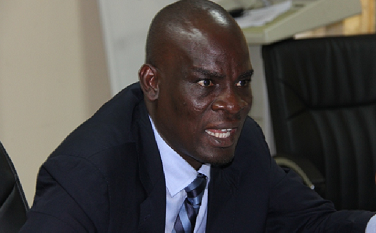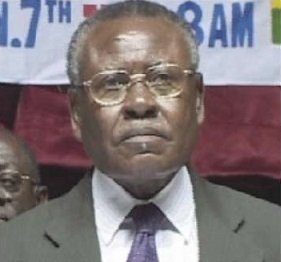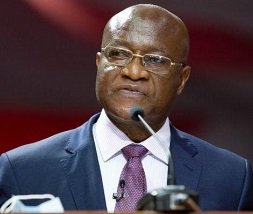Features
Parliament: Any chance for lasting consensus building?

Ghana’s 2022 budget was rejected by the Minority in Parliament on Friday, November 26, 2021. Four days later, on Tuesday, November 30, 2021, however, the Majority Group in Parliament also overturned the decision and approved the policy document. Mr Joseph Osei Owusu, the First Deputy Speaker of Parliament, who presided, said the rejection of the budget by the Minority was null, void and had no effect.
According to Mr Osei Owusu, the Speaker of Parliament, Mr Alban Bagbin erred in presiding over the rejection of the budget “since there was no clear majority in the House during the proceedings.” Mr Osei Owusu said: “The consequence of this unfortunate error is that, it is void and inconsequential since it was done in violation of Article 104(1) of the 1992 Constitution.”

The Minority also claims that the approval of the budget by the Majority is unconstitutional and “an attack on Ghana’s parliamentary proceedings and democracy”. Mr Haruna Iddrisu, Minority Leader in Parliament says; “the Majority engaged in a constitutional charade.” From the current tussle in Parliament; we reproduce this feature which was published in The Spectator on April 17, 2021, in this very column. I was privileged to have interacted with the venerable Mr Joseph Henry Mensah on a number of occasions and on varied reflective national issues. Affectionately called J.H. Mensah, the quintessential patriot, was very colourful but a controversial politician in the Ghanaian political history. Indeed, J.H. Mensah was not an ordinary Ghanaian politician. He was an international giant in his field of study; economics.
But more or less, he ended up in public life as a full-time politician; holding different portfolios at different times. He was virtually my father. I had the privilege to host him a number of times; on behalf of the Komenda-Edina-Eguafo-Abrem Municipal Assembly. And he practically contributed to the development of the municipality when I was the Municipal Chief Executive and he, the Senior Minister in President Kufuor’s regime. Incontestably, J.H. Mensah was responsible for Osagyefo Dr Kwame Nkrumah’s Seven-Year Development Plan. He told me: “I was invited from the United Nations in 1961 to take charge of the Planning Commission of the Development Plan. “Kwame Nkrumah was the Chairman and I was the Executive Secretary.
I wrote the plan. I did not just take part, I was entirely responsible for it.” He said: “I was also the Chief Economic Adviser to the CPP government at the age of 33. And I was acting purely as a professional and not a member of the CPP. I never joined the CPP.” Readers, why am I disturbing you about this great man who died recently and was buried here in Ghana? In the Fanti language, it is said that “tekyerema mporo”. Literally translated; the tongue never gets rotten and that any word that comes out from the tongue, is everlasting.
Most often, we quote outsiders to support our arguments in our national development efforts. But today, let’s listen to J.H Mensah. He says, “consensus building in Parliament is one area that must be developed in our present civil constitutional dispensation.” According to J.H. Mensah, when the Progress Party was in power between 1969 and 1972, there was a great deal of consensus in Parliament. He said: “The late Komla Agbeli Gbedemah and later, E.R. Madjetey who became opposition leaders, had direct access to Dr K.A. Busia’s office.
“And in Parliament, the government involved the opposition in the planning of major policies.” According to him: “This runs counter to the present system where the Minority is left in the dark but asked to support government policies.” Mr. Mensah says: “You can’t use Parliament like a rubber-stamp.
So that anytime you want parliamentarians to vote on something; you drive them like sheep,” stressing that, “this is one of the fundamental defects of the democracy we are practising here.” Readers, as a nation we cannot have consensus by declaration. We can get consensus by discussions; involving compromising and bargaining. And is it happening in our Parliament? Otherwise, why should ballot boxes be kicked and “stolen” in Parliament and ballot papers chewed like tiger nuts? And, for example, why should the approval of the fiscal policy of government and ministerial nominees, become intractable bone of contention in Parliament? And why should the Speaker of Parliament be branded as making Parliament an enclave of top opposition figures and fanatics? And why should the General Secretary of the opposition NDC openly claim that the “incompetence” of the current Finance Minister will inure to the benefit of his party; come the 2024 general election; thus, resulting in his recent approval by the Minority as Finance Minister? In effect, as a nation can’t we enhance the development of consensus in Parliament, besides having our national priorities right? And as indicated by J.H. Mensah; in Parliament for instance, can’t the NPP administration involve the NDC in planning some of its major prolicies? Again, per J.H. Mensah’s example; can’t the leadership of the Minority have direct access to the President’s office? Are the two major political parties in Ghana enemies or opponents? Readers, democracy is more than the sum of its institutions.
A healthy democracy depends in a large part on the development of a democratic civic culture. Culture, in this sense, does not refer to art, literature or music but the behaviours, practices and norms that define the ability of a people to govern themselves. So, as a nation, can’t we develop our own democratic civic culture to govern ourselves?
Contact email/WhatsApp of the author: asmahfrankg@gmail.com (0505556179)
By G. Frank Asmah
Features
Traditional values an option for anti-corruption drive — (Part 1)
One of the issues we have been grappling with as a nation is corruption, and it has had such a devastating effect on our national development. I have been convinced that until morality becomes the foundation upon which our governance system is built, we can never go forward as a nation.
Our traditional practices, which have shaped our cultural beliefs, have always espoused values that have kept us along the straight and the narrow and have preserved our societies since ancient times.
These are values that frown on negative habits like stealing, cheating, greediness, selfishness, etc. Our grandparents have told us stories of societies where stealing was regarded as so shameful that offenders, when caught, have on a number of instances committed suicide.
In fact, my mother told me of a story where a man who was living in the same village as her mother (my grandmother), after having been caught stealing a neighbour’s cockerel, out of shame committed suicide on a mango tree. Those were the days that shameful acts were an abomination.
Tegare worship, a traditional spiritual worship during which the spirit possesses the Tegare Priest and begins to reveal secrets, was one of the means by which the society upheld African values in the days of my grandmother and the early childhood days of my mother.
Those were the days when the fear of being killed by Tegare prevented people from engaging in anti-social vices. These days, people sleeping with other people’s wives are not uncommon.
These wrongful behaviour was not countenanced at all by Tegare. One was likely going to lose his life on days that Tegare operates, and so unhealthy habits like coveting your neighbour’s wife was a taboo.
Stealing of other people’s farm produce, for instance, could mean certain death or incapacitation of the whole or part of the body in the full glare of everybody. People realised that there were consequences for wrongdoing, and this went a long way to motivate the society to adhere to right values.
Imagine a President being sworn into office and whoever administers the oath says, “Please say this after me: I, Mr. …., do solemnly swear by God, the spirits of my ancestors and the spirits ruling in Ghana, that should I engage in corrupt acts, may I and my family become crippled, may madness become entrenched in my family, may incurable sicknesses and diseases be my portion and that of my family, both immediate and extended.”
Can you imagine a situation where a few weeks afterwards the President goes to engage in corrupt acts and we hear of his sudden demise or incapacitation and confessing that he engaged in corrupt acts before passing or before the incapacitation—and the effect it will have on his successor? I believe we have to critically examine this option to curb corruption.
My grandmother gave me an eyewitness account of one such encounter where a woman died instantly after the Tegare Priest had revealed a wrong attitude she had displayed during the performance on one of the days scheduled for Tegare spirit manifestation.
According to her story, the Priest, after he had been possessed by the spirit, declared that for what the woman had done, he would not forgive her and that he would kill. Instantly, according to my grandmother, the lady fell down suddenly and she died—just like what happened to Ananias and his wife Sapphira in Acts Chapter 5.
NB: ‘CHANGE KOTOKA INTERNATIONAL AIRPORT TO KOFI BAAKO
By Laud Kissi-Mensah
Join our WhatsApp Channel now!
https://whatsapp.com/channel/0029VbBElzjInlqHhl1aTU27
Features
Emotional distortions:A lethal threat to mental health
Emotional distortions can indeed have a profound impact on an individual’s mental health and well-being. These distortions can lead to a range of negative consequences, including anxiety, depression, and impaired relationships.
Emotional surgery is a therapeutic approach that aims to address and heal emotional wounds, traumas, and blockages. This approach recognises that emotional pain can have a profound impact on an individual’s quality of life and seeks to provide a comprehensive and compassionate approach to healing.
How emotional surgery can help
Emotional surgery can help individuals:
Identify and challenge negative thought patterns: By becoming aware of emotional distortions, individuals can learn to challenge and reframe negative thoughts.
Develop greater emotional resilience: Emotional surgery can help individuals develop the skills and strategies needed to manage their emotions and respond to challenging situations.
Improve relationships: By addressing emotional wounds and promoting emotional well-being, individuals can develop more positive and healthy relationships with others.
The benefits of emotional surgery
The benefits of emotional surgery can include:
Improved mental health outcomes: Emotional surgery can help individuals reduce symptoms of anxiety and depression.
Enhanced relationships: Emotional surgery can help individuals develop more positive and healthy relationships with others.
Increased self-awareness: Emotional surgery can help individuals develop a deeper understanding of themselves and their emotions.
A path towards healing
Emotional surgery offers a promising approach to addressing emotional distortions and promoting emotional well-being. By acknowledging the impact of emotional pain and seeking to provide a comprehensive and compassionate approach to healing, individuals can take the first step towards recovery and improved mental health.
Join our WhatsApp Channel now!
https://whatsapp.com/channel/0029VbBElzjInlqHhl1aTU27
BY ROBERT EKOW GRIMMOND-THOMPSON






